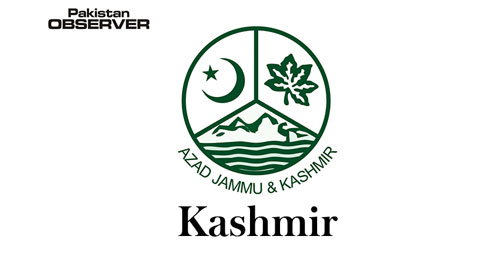Dr Syed Nazir Gilani
After all Delhi administration
had to set free President of
Awami National Conference Begum Khalida Shah and its Vice President Muzaffar Shah under the orders of Jammu and Kashmir High Court at Srinagar and set free former Chief Minister and Member of Parliament Farooq Abdullah by revoking his detention orders. The politics in the habitat of Kashmir, on the Indian side of ceasefire line has always been full of rumours. Every time someone gains freedom from an unlawful detention or imprisonment, he is looked upon with suspicion, for having entered into a deal. It should not be so. One has a right to challenge his or her loss of liberty and we should all join in to ensure freedom from an unlawful arrest and help to challenge any loss of liberty.
We have a Kashmir far different to 1846, 1931, 1947, 1953 and 1990. Kashmir has entered into 2020. These are times dominated by social media and there is hardly a niche in Indian political fabric that could remain hidden as a secret for long. The character of arrests and detentions of Kashmiris after 5 August 2019, has left New Delhi with very limited options. It would be too difficult for Delhi to seduce Kashmiris so easily. There might be a few who might make an error of judgement and fail the people in this hour of need.
New Delhi may have found a hand in the shape of Apni Party. But Altaf Bukhari would encounter serious problems. As a start it is encouraging to see that former chief minister of Jammu and Kashmir and leader of opposition in the Indian Parliament Ghulam Nabi Azad, went to Srinagar, to meet Farooq Abdullah after his release and made demands for the restoration of democracy in the Indian administered Kashmir (now occupied), restoration of statehood to the State and start of a political process.
Government of India would not find it easy to seduce the Kashmiri leadership for anything new or different that would be a departure from the recommendations of State Autonomy Committee Report adopted by the special session of J & K Assembly Session in 1999. The report has concluded that the original terms of accession of Jammu and Kashmir to India had been diluted beyond recognition. It suggested that even though the status quo ex ante could not be restored, it would constitute the fundamental point of departure in any consideration of autonomy for the State.
State Government (Indian occupied) constituted another Regional Autonomy Committee (RAC) in August 1999, to suggest measures for implementing reports of earlier committees. The State government endorsed the “RAC’s main recommendation to full restoration of the 1952 autonomous status to the State, which barred Centre from any control except the three crucial matters of defence, communications and external affairs. Jammu and Kashmir Assembly adopted the recommendations of RAC on 26 June 2000 after debating it in a special session of the State Assembly.”
Restoration of internal autonomy is a temporary negotiated arrangement with Delhi, until there is a UN supervise Plebiscite, for the right of self-determination. Therefore, politicians elected to State Assembly from 1996 onwards are under oath to seek the restoration of ‘internal autonomy’. They are under an oath to defend the flag and the constitution of the State.
Indian Government has savaged the character of Kashmiri politics on 5 August and 31 October 2019. All political parties and politicians who have been in the State Assembly from September 1996 to August 2019 when BJP Government unlawfully aggressed against the politics and status of the State, would not be in any position, to sell any Indian political specimen to the people of Jammu and Kashmir. In addition these politicians, cannot ignore the people living in Azad Kashmir, Gilgit and Baltistan, 2.5 million Kashmiri refugees living in the four provinces of Pakistan and the Kashmiri diaspora spread around the world.
After 5 August 2019 Government of India has landed itself in hot waters in all the three administrations of Jammu and Kashmir, in Pakistan which is a party to the dispute and at the United Nations, which has given a plan to India and Pakistan, in the conduct of a free, fair, impartial and secure Plebiscite in the State. Indian Government would not be able to seduce Apni Party or any other Kashmiri politician, to serve her interests in Kashmir at this point.
The character of Kashmir politics has changed over the years. The behaviour of Kashmiri politics in all the three administrations of the State is no more a secret. Social media and the clashes at UN in New York during the General Assembly Sessions and clashes in Geneva during the regular sessions of Human Rights Council and on the streets in various capitals around the world, spill over all beans. How can an Indian, a Pakistan, a Kashmiri or any other person who keeps a watch on life and habitat in the Indian administered Kashmir (now occupied) miss out the citation of A S Dulat, former chief of Indian RAW (Research and Analysis Wing), at page 205 in his book entitled “Kashmir – the Vajpayee years”.—KMS










